1. Introduction: How to Choose a Smart Lock That Won’t Let You Down
With technology being part of our daily lives, we cannot say that closing the door with a deadbolt is the only thing needed to secure the home anymore. The arrival of smart locks has shifted the home locking system to a new level by offering convenience, control, and peace of mind that many traditional locks lack. But given that the choices are aplenty, how do you go about picking a smart lock that will serve you well?
This article outlines the most important aspects and guides the reader through the process of making the right choice, including what do the smart locks look like, how to compare their features including security features, ease of use, and compatibility with a smart home.
2. Understanding Different Types of Smart Locks
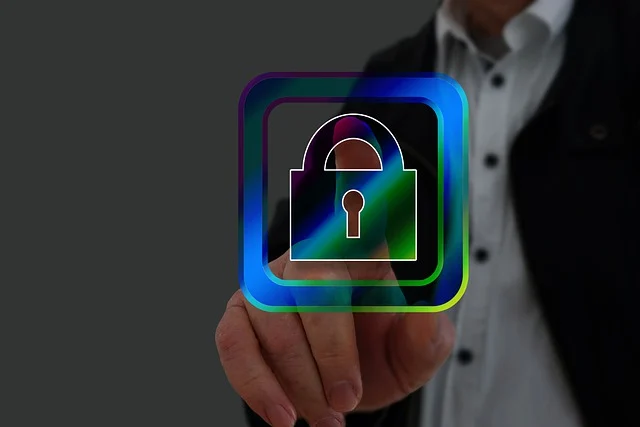
Bluetooth Smart Locks
Bluetooth smart locks operate through short range wireless technology which assures you that you can open your door even when you are closest to it.
This type of lock is convenient because of its alternative installation methods and it is not usually connected to the internet. But for users who prefer to gain access from a distance, that option may be limited as well.
Wi-Fi Smart Locks
Wi-Fi smart locks offer a more flexible option allowing you to use the lock control from any location where the internet is available.
You may lock or unlock the door, check the lock status, or let someone in remotely whenever you wish. But they usually have more appliances that suck battery and therefore the battery has to be changed often.
Keypad Smart Locks
With keypad locks, the end-users are obliged to provide a code by entering above a keypad to unlock the door, proving to be a more conventional
Biometric Smart Locks
What are biometric smart locks Biometric systems employed in smart locks consist of fingerprint readers or similar identification tools that determine one’s identity and use it to unlock the smart locks.
This advertising advanced technology offers a great convenience to the users and hence, is close to being impossible to hack. But, it can be high priced and requires intricate configuration to guarantee its dependability.
3. Key Considerations Before Choosing a Smart Lock
Security Features to Look For
Choosing a smart lock is perhaps the most critical step in your journey on a smart lock. Look for features like anti-pick mechanisms, auto-lock functions, and two-factor authentication for enhanced protection before settling on a smart lock.
Compatibility with Existing Door Hardware
Do not assume that all smart locks will fit your current door. Therefore check the size and thickness of your door or be ready to do some changes.
User Authentication Methods
User authentication is one of the most advanced and most necessary features of a smart lock. There are various forms of authentication for smart locks, including user-created passwords, fingerprint scanners and smartphone-based access. Pick one that fits your purpose in terms of security and daily usage.
4. Assessing Smart Lock Connectivity
Bluetooth vs Wi-Fi Smart Locks
Bluetooth locks are very effective for access control at proximity but, Wi-Fi smart locks enable authentication of remote control. Each serves its purpose depending on the needs of the user.
Pros and Cons of Both Technologies
Although the range of Bluetooth locks helps in power-saving features, those who prefer remote control would appreciate the functionality of Wi-Fi locks. However, Wi-Fi smart locks
5. Durability and Build Quality
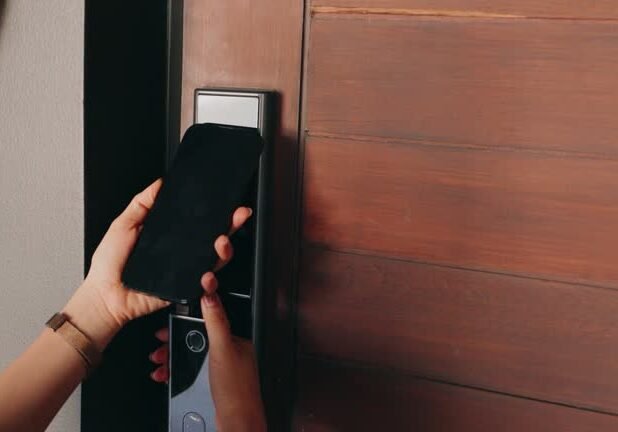
Material Considerations
What material your smart lock is manufactured from is important because of its security aspects and its beauty. Stainless steel and zinc alloy are known to be good materials due to their high rigidity and tamper-proof nature.
Weather Resistance for Outdoor Use
In the case where the smart lock is going to be installed on an outer door, it needs to be made of materials that are designed to resist falling apart even when subjected to rough weather. Some locks offer such protection against water and even extreme heat and cold.
6. Ease of Installation
DIY vs Professional Installation
Most units are designed in a manner where they can easily be installed by the user, but there are some that need the expertise of a specialist due to the nature of installation including rewiring or if certain specific tools are involved.
Smart Locks for Renters and Homeowners
Tenants may opt for a type of lock that doesn’t need changing permanently, while owners should enhance stronger systems.
7. Battery Life and Power Considerations
Battery Types Common in Smart Locks
The typical locking device, which is battery operated, uses ) AA batteries or does use a lithium battery. Knowing the type of battery your lock has, helps maintain its useful longevity.
Backup Options in Case of Power Outage
To prevent getting locked out in case of low batteries, make sure your smart lock has a backup key option or a power reserve system.
8. Integration with Smart Home Systems
Compatibility with Alexa, Google Home, and Siri
Smart locks that connect to voice assistants like Alexa, Google Home, and Siri make it even easier. You can lock/unlock a door through either voice commands or apps.
How Smart Locks Fit into Your Smart Home Setup
If you already have a smart home setup, then ensure your smart lock is compatible with your system. This way, everything under one platform gets managed.
9. Security Certifications to Consider

ANSI/BHMA Standards
These are the gold standards for door hardware security. Choose smart locks that meet these standards for surety in quality and protection.
Encryption Levels
The higher the encryption level, the stronger your smart lock will be. Take smart locks with advanced encryption to the lock of digital threats.
10. User-Friendly Features
Auto-Lock and Unlock Functions
Auto-lock features will give you that peace of mind because your door locks up after a certain period. Unlock features allow for hands-free entry when you’re nearby.
Remote Access Capabilities
This aspect is a real showstopper in terms of convenience. Those who travel frequently or live far away should look for remote access capabilities when choosing the lock.
11. Privacy Concerns and Data Security
How Smart Locks Protect Personal Information
High-security standards on data should be maintained with smart locks to protect your information. Try lock solutions that encrypt your data and use secure authentication processes.
Avoiding Hacks and Unauthorized Access
12. Price vs. Performance
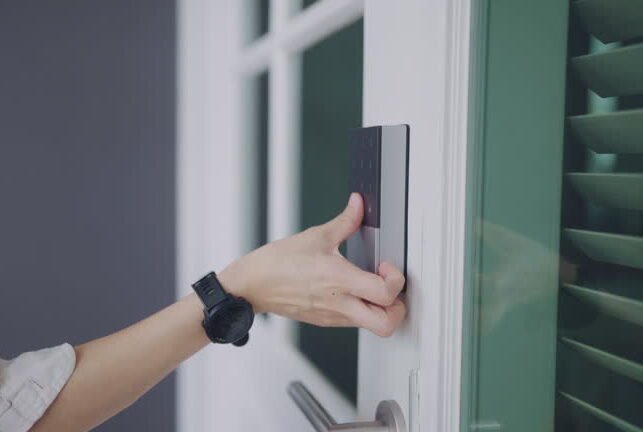
Finding the Right Balance for Your Budget
While some smart locks are packed with premium features, you don’t always need the most expensive model to achieve great security and convenience. Determine your must-have features before settling on a budget.
Are Premium Features Worth the Extra Cost?
The high-end models are made with voice recognition and biometric entry. Whether this added benefit is worth the increased price hinges on your particular needs and situation.
13. Expert Insights or Case Studies
Experiences from Smart Lock Users
For the user of the smart lock, the emphasis is usually that of serenity and peace of mind because one can be sure of monitoring and in control of access to the home where he or she departs during work hours or whatever reason may be.
Quotes from Security Experts
The best suggestion from security professionals would be to use locks with the maximum encryption levels and certified security standards so that nothing can breach such locks.
14. Emerging Trends in Smart Locks
The Future of Biometric Technology
They are becoming highly advanced and offer the simplest, fastest, and most secure means of unlocking doors. The next wave of smart locks will most likely feature multi-modal authentication methods.
What to Expect from the Next Generation of Smart Locks
We should expect continued improvements in battery life, security features, and more enhanced smart home integration from the continuously emerging technology of smart locks.
15. Conclusion
A smart lock is an investment for your security and convenience in the home. Whether you consider some form of advanced security feature, user-friendliness, or integration with your smart home setup, there are smart locks that will suit your needs. Be sure to weigh your options to thoroughly consider such factors as connectivity, durability, and user authentication before making your decision.

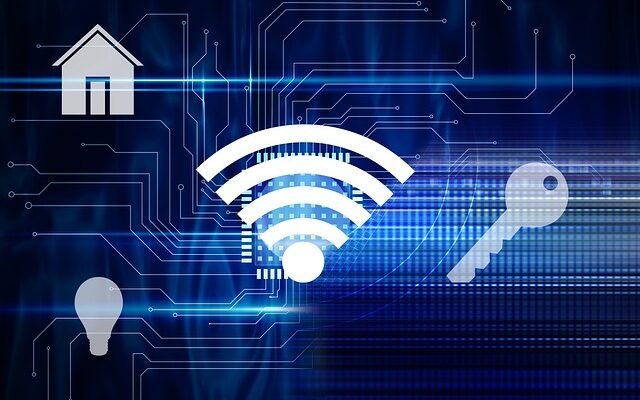
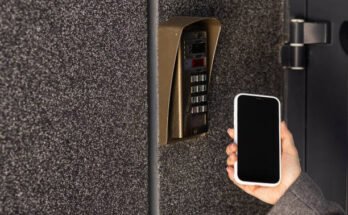


2 Comments on “How to Choose a Smart Lock That Won’t Let You Down”